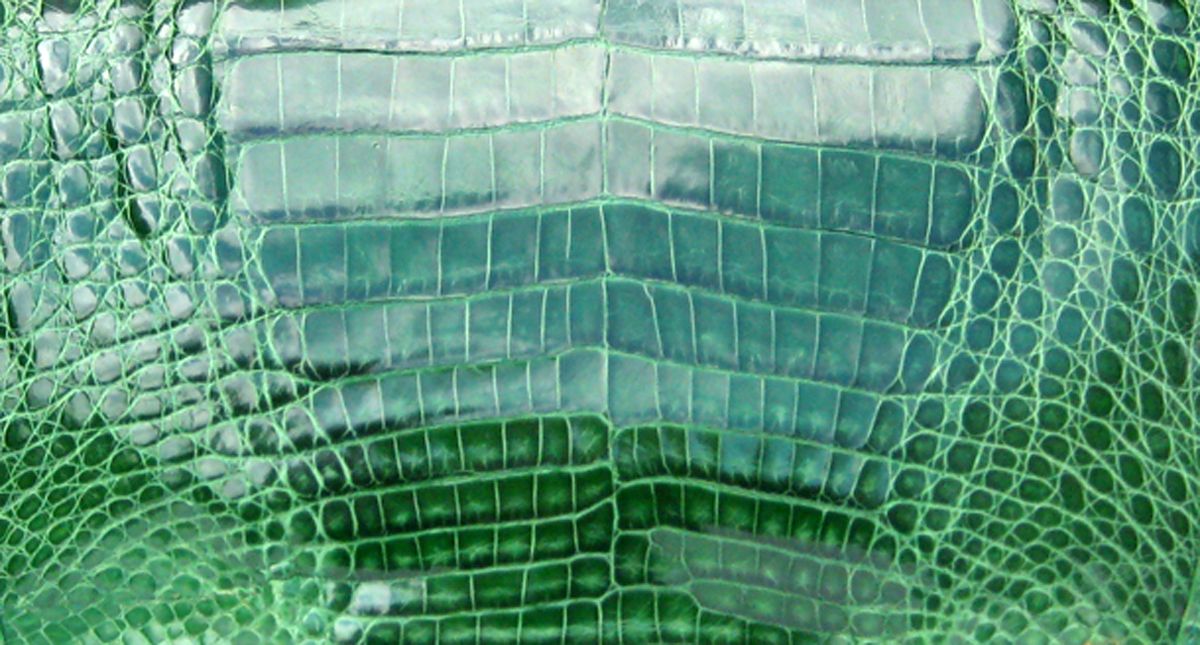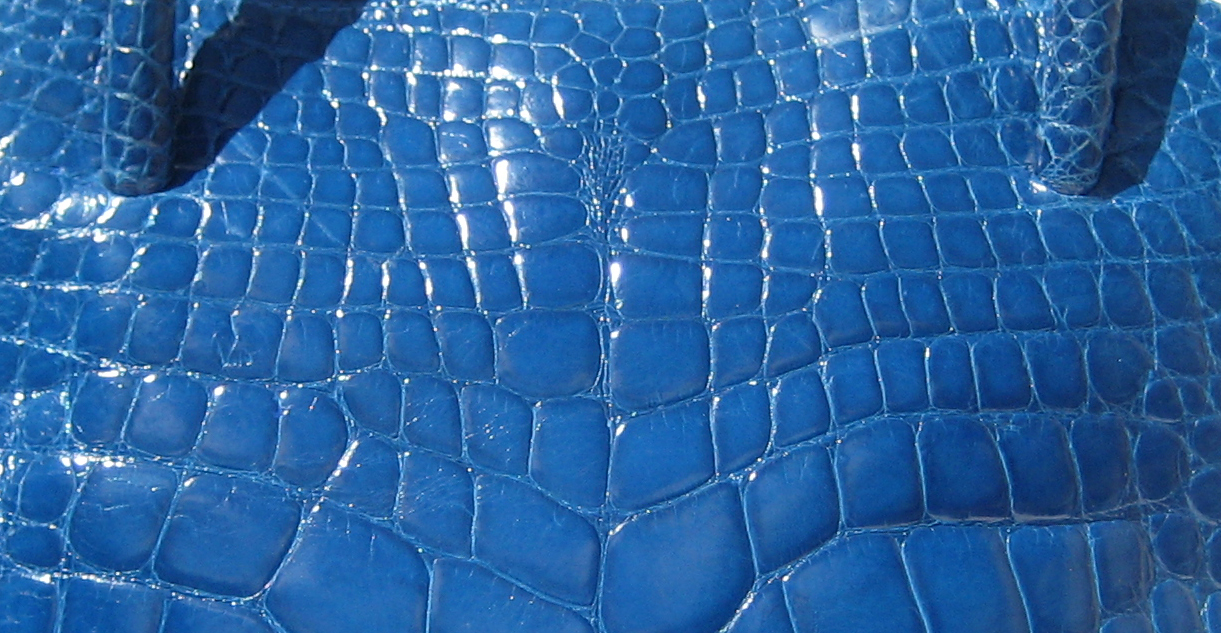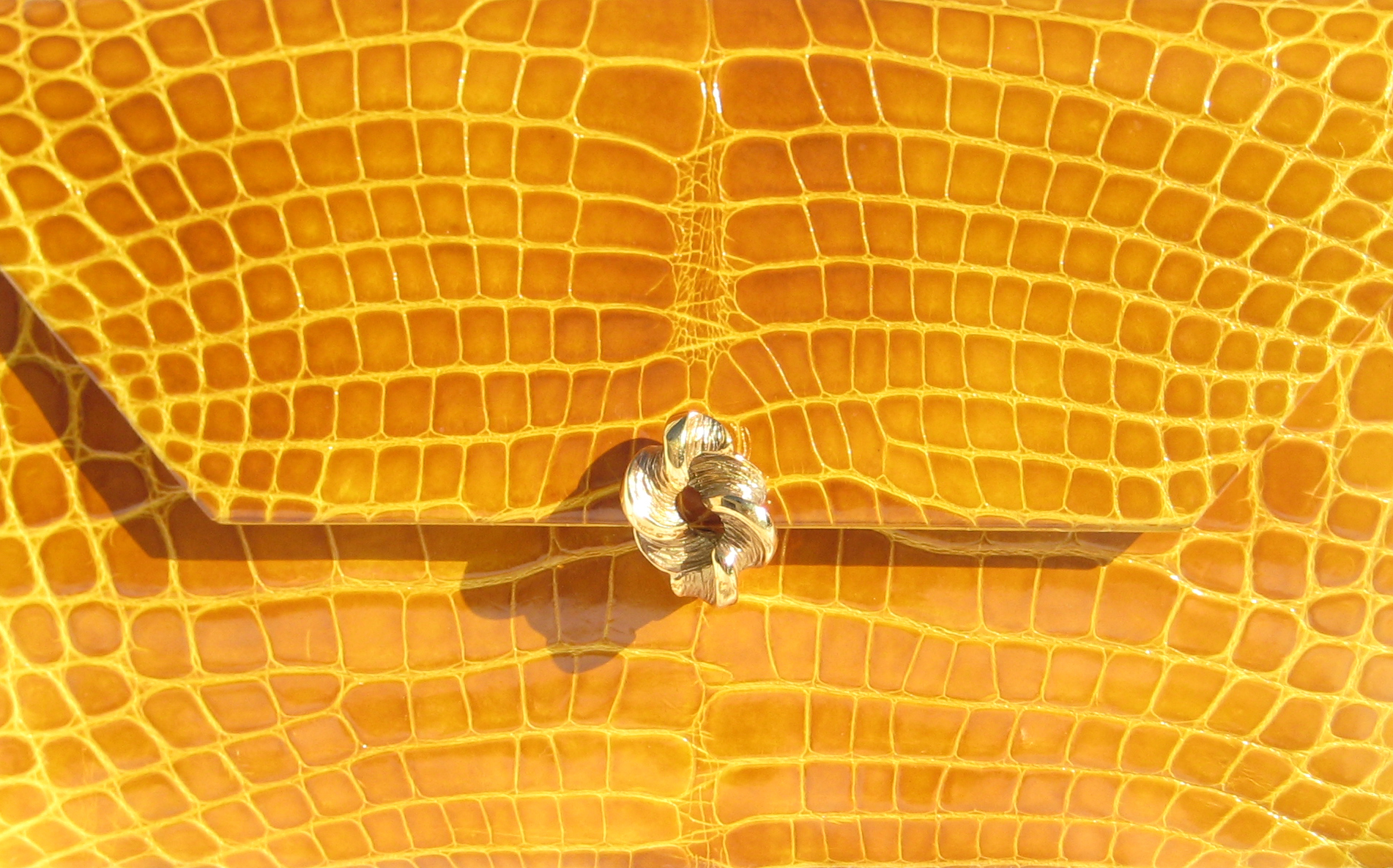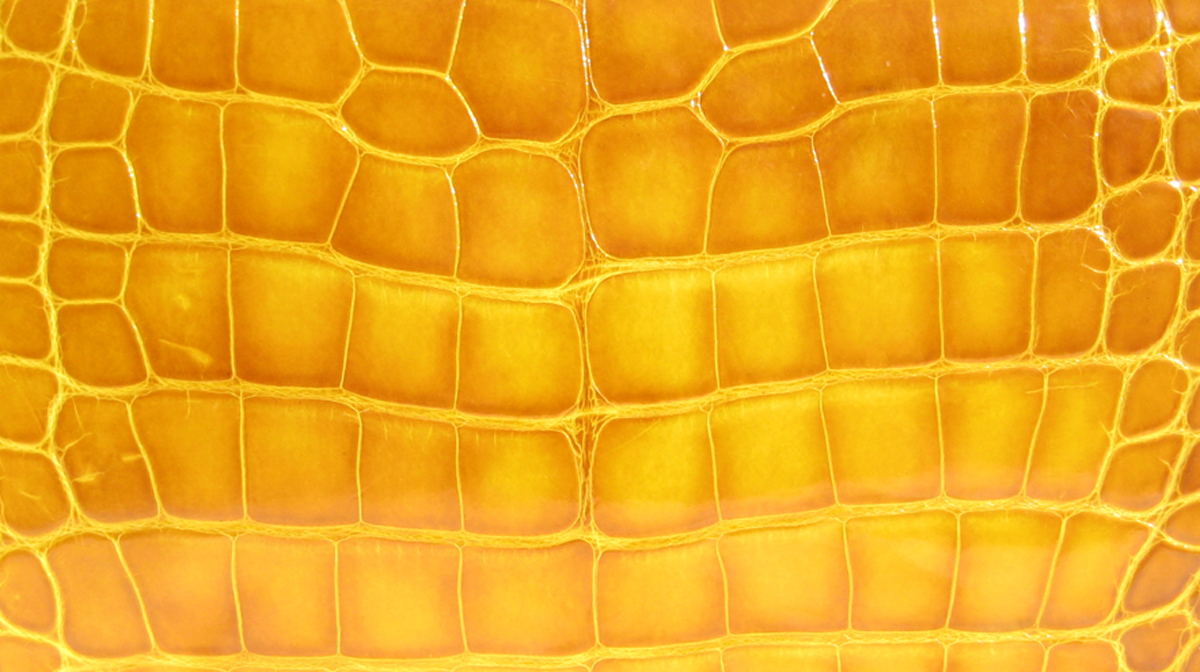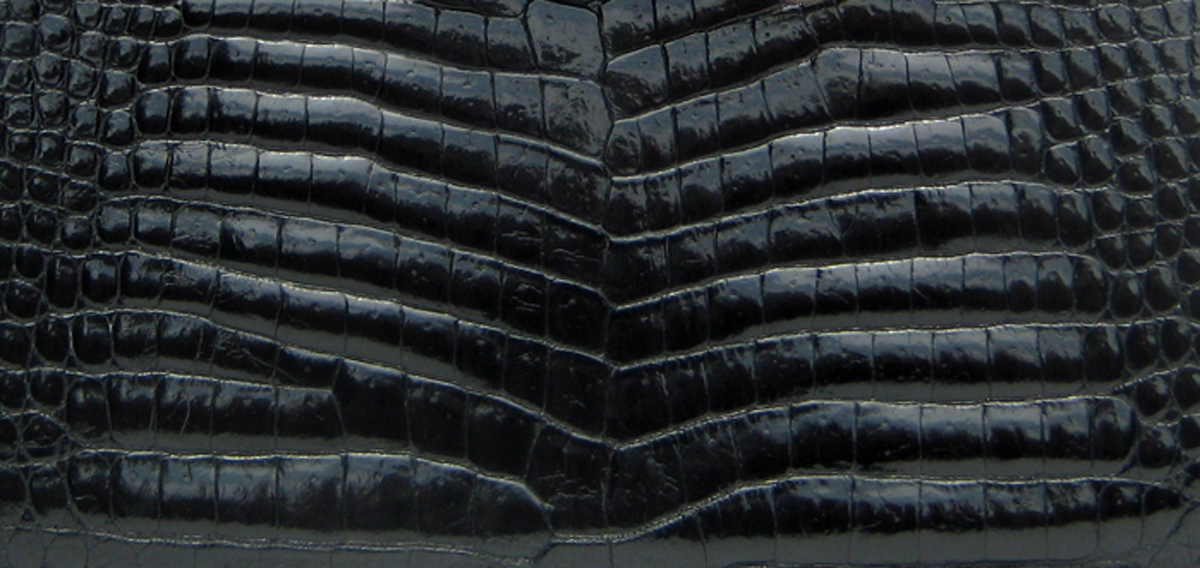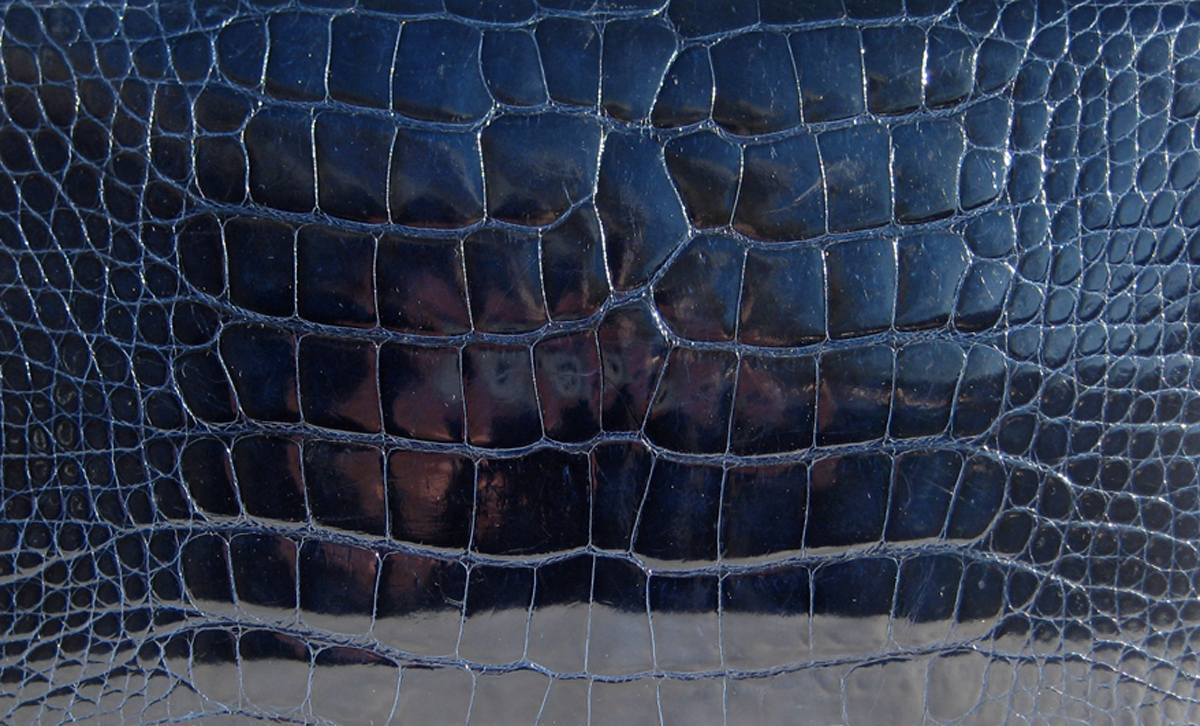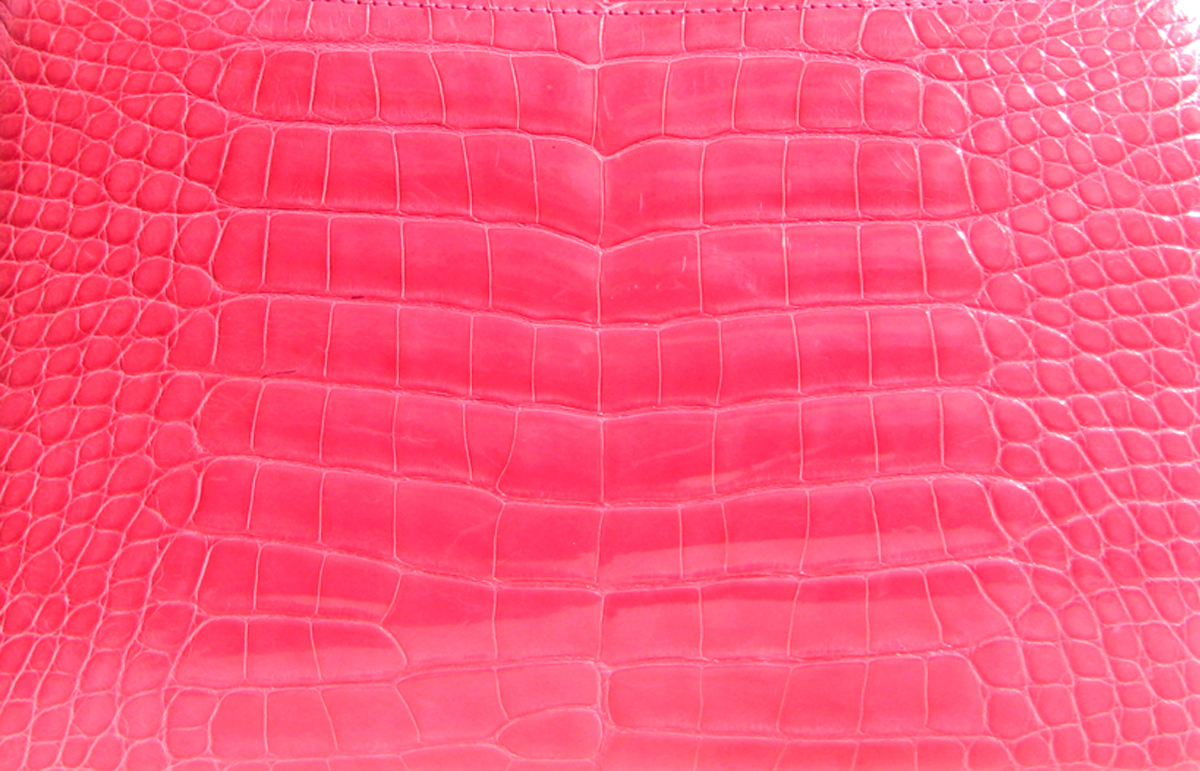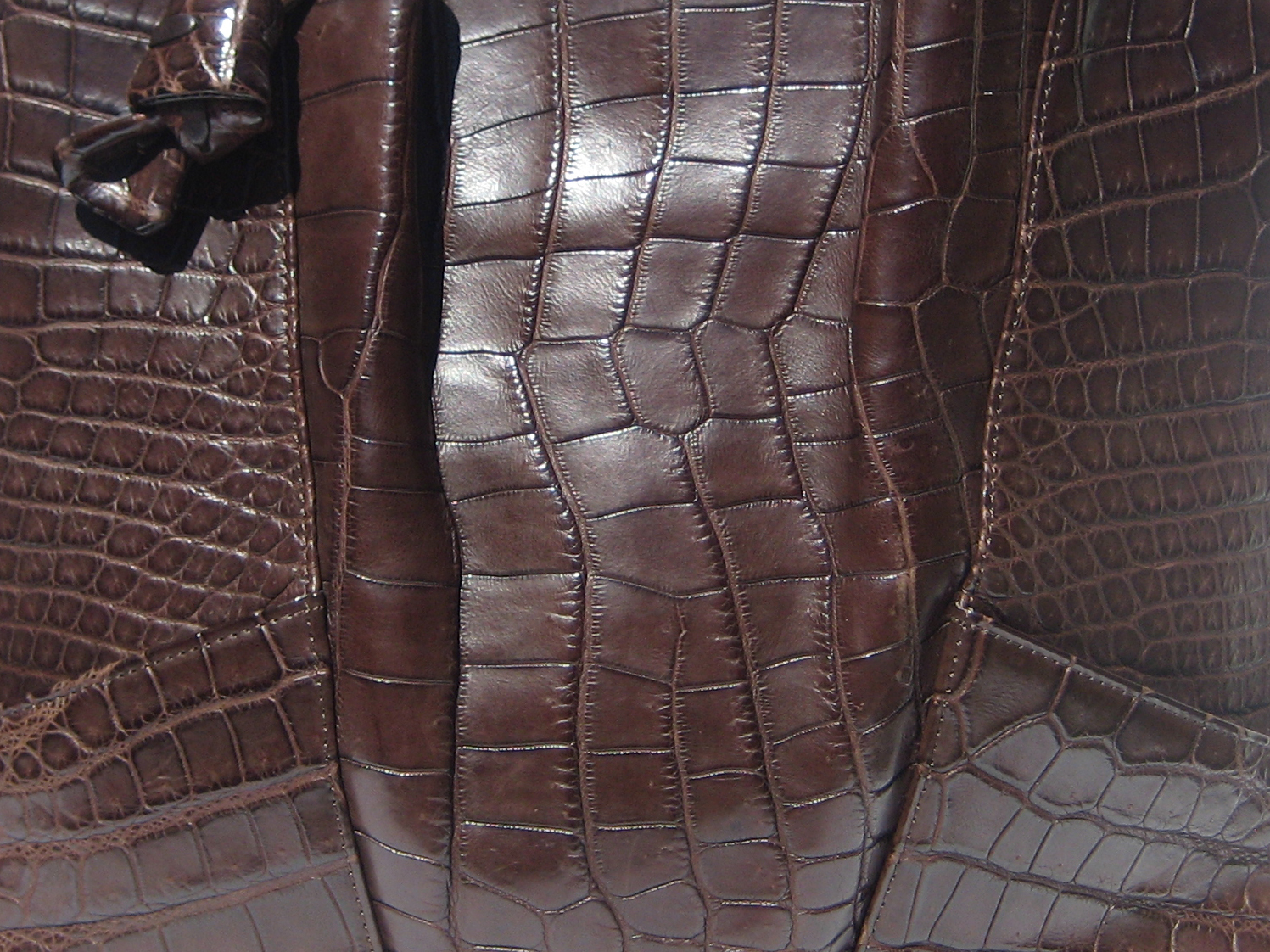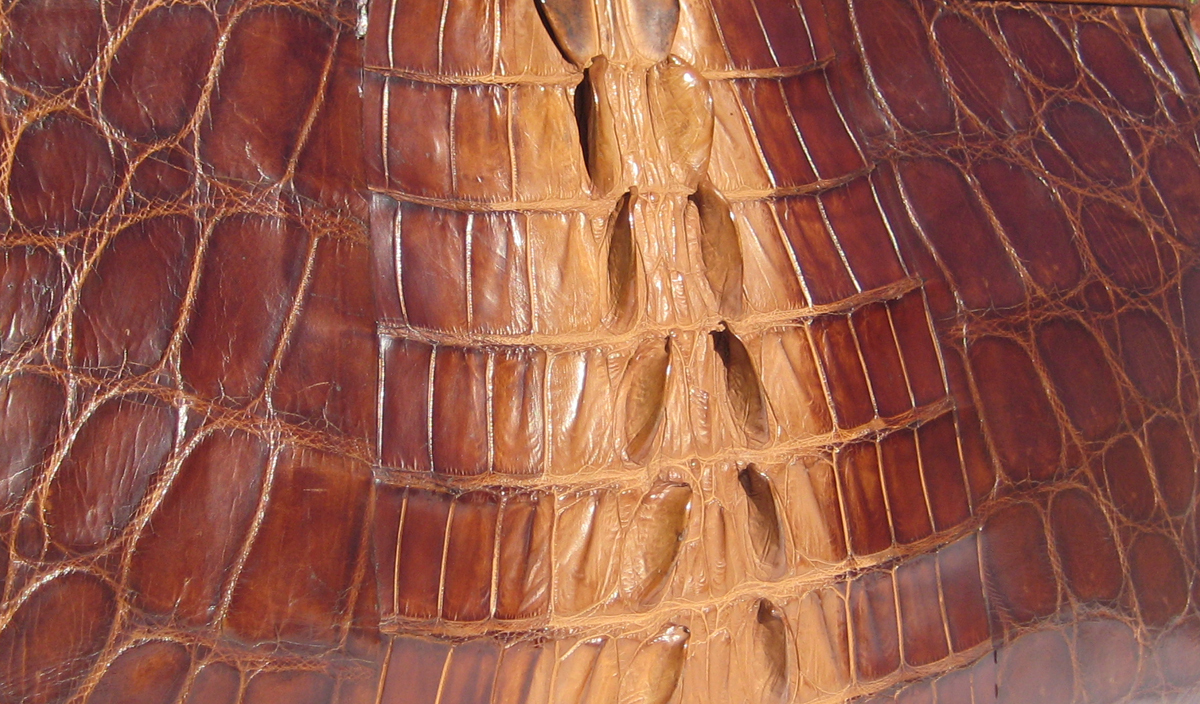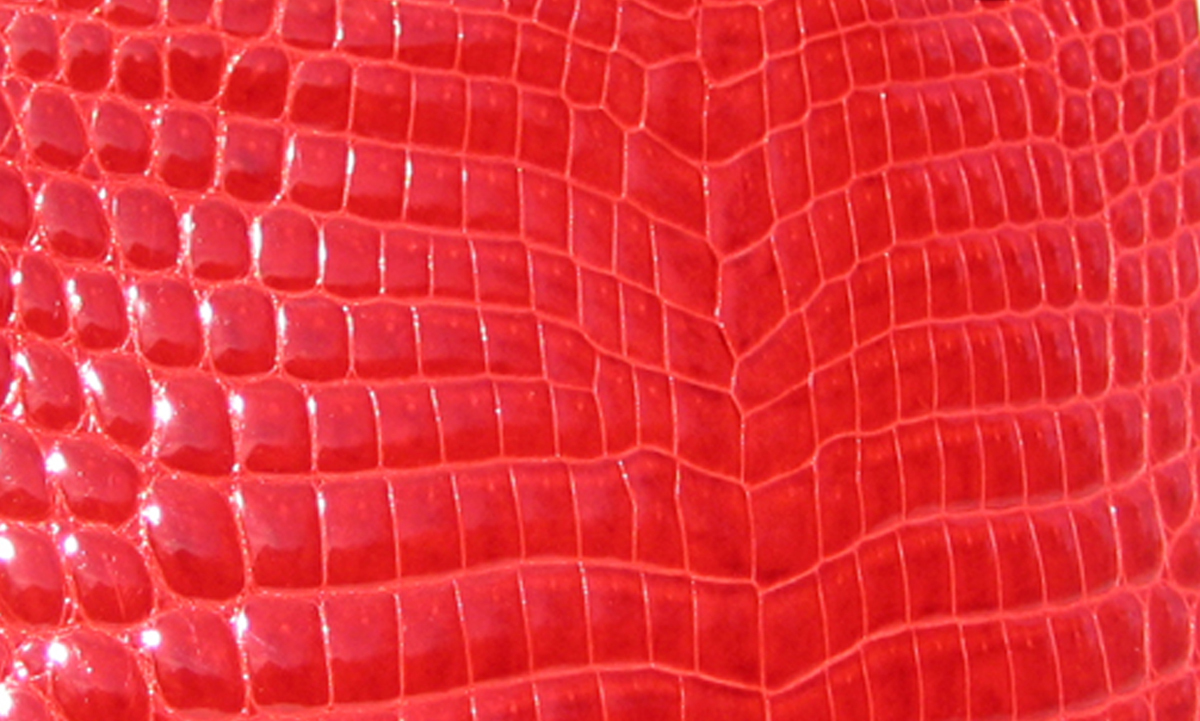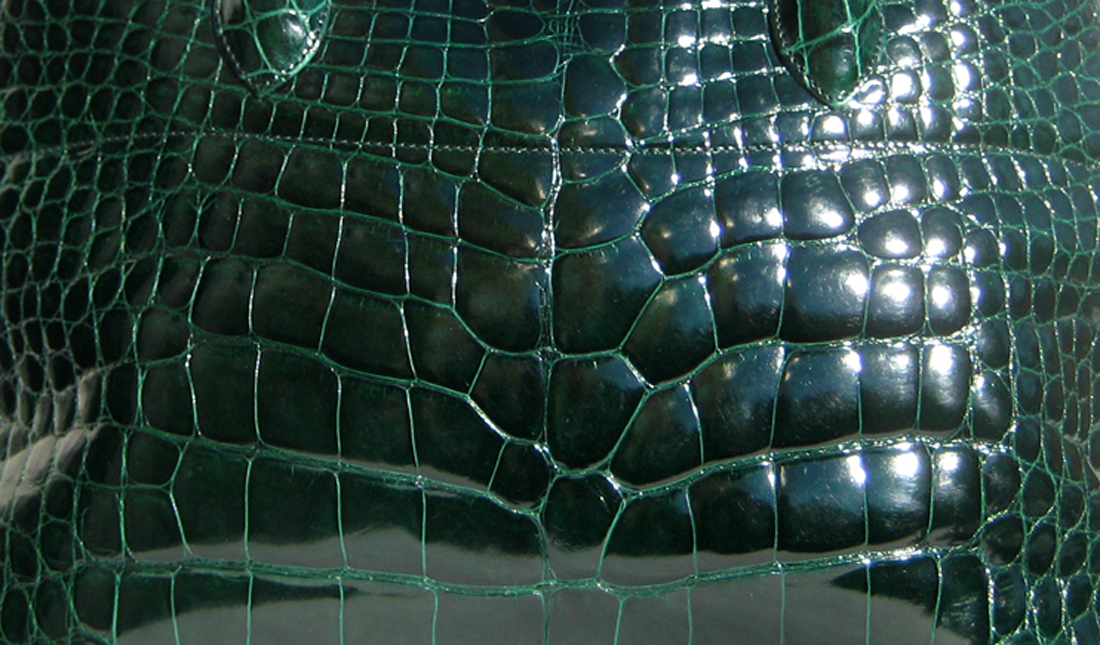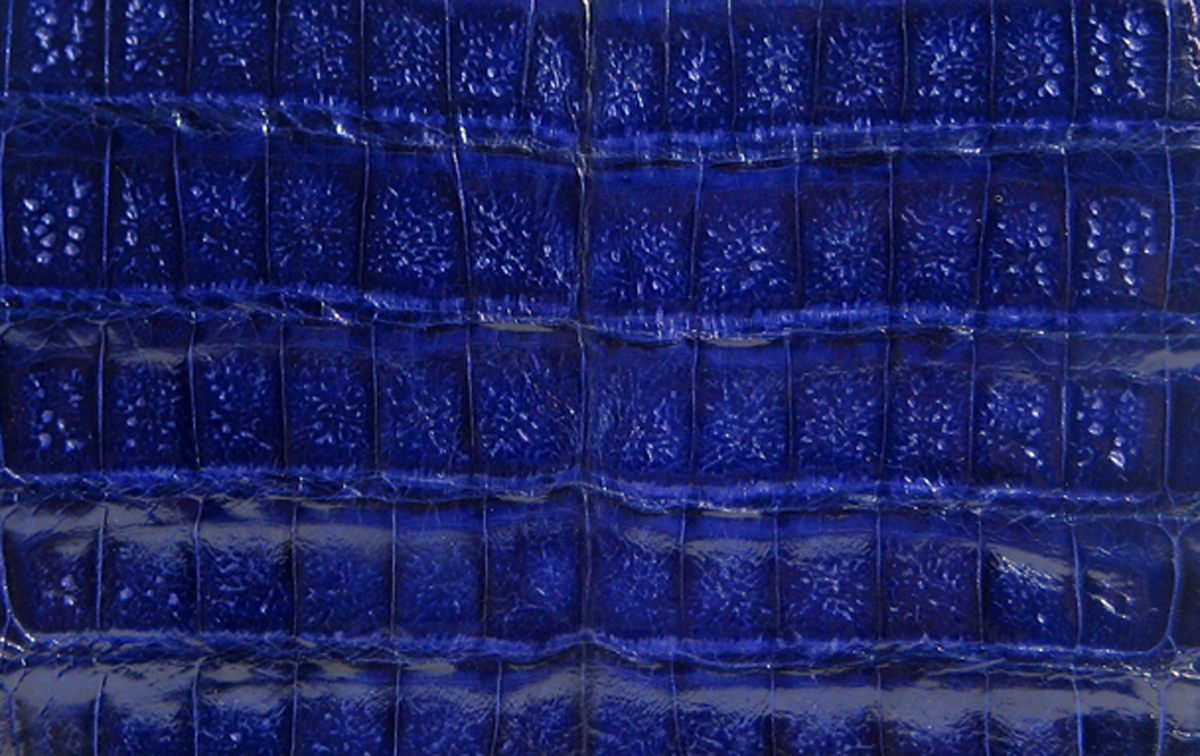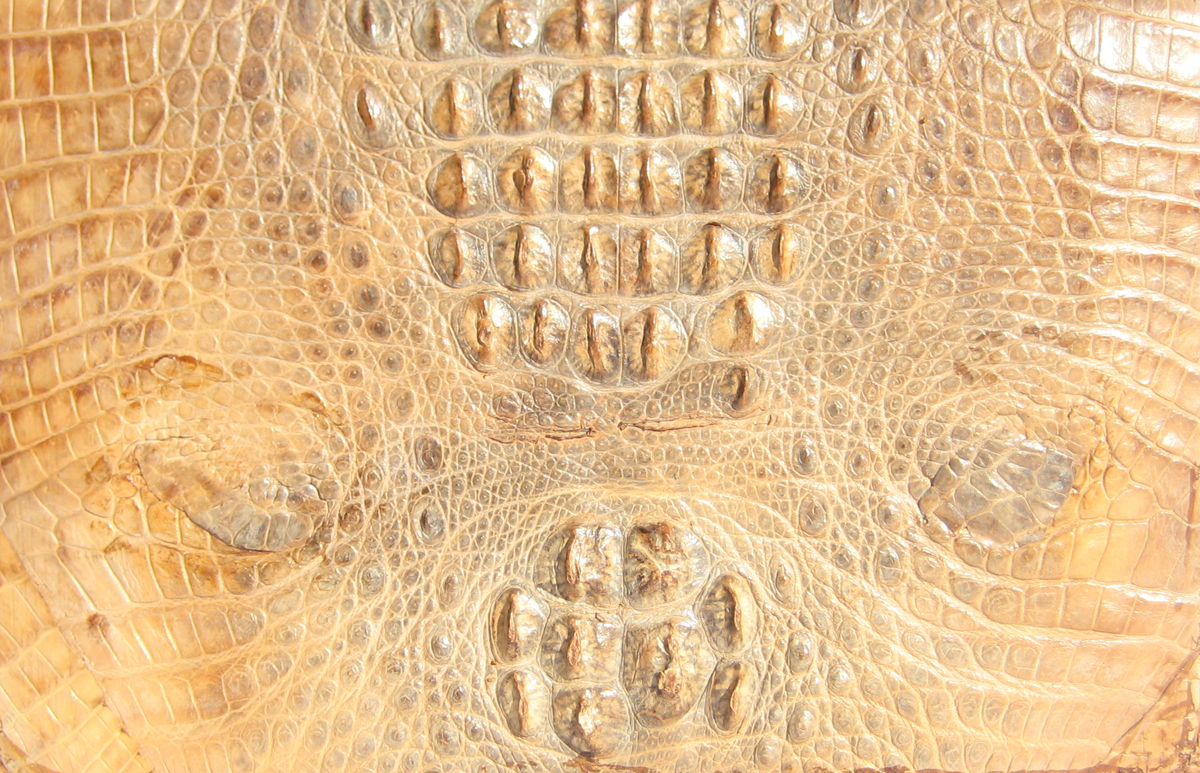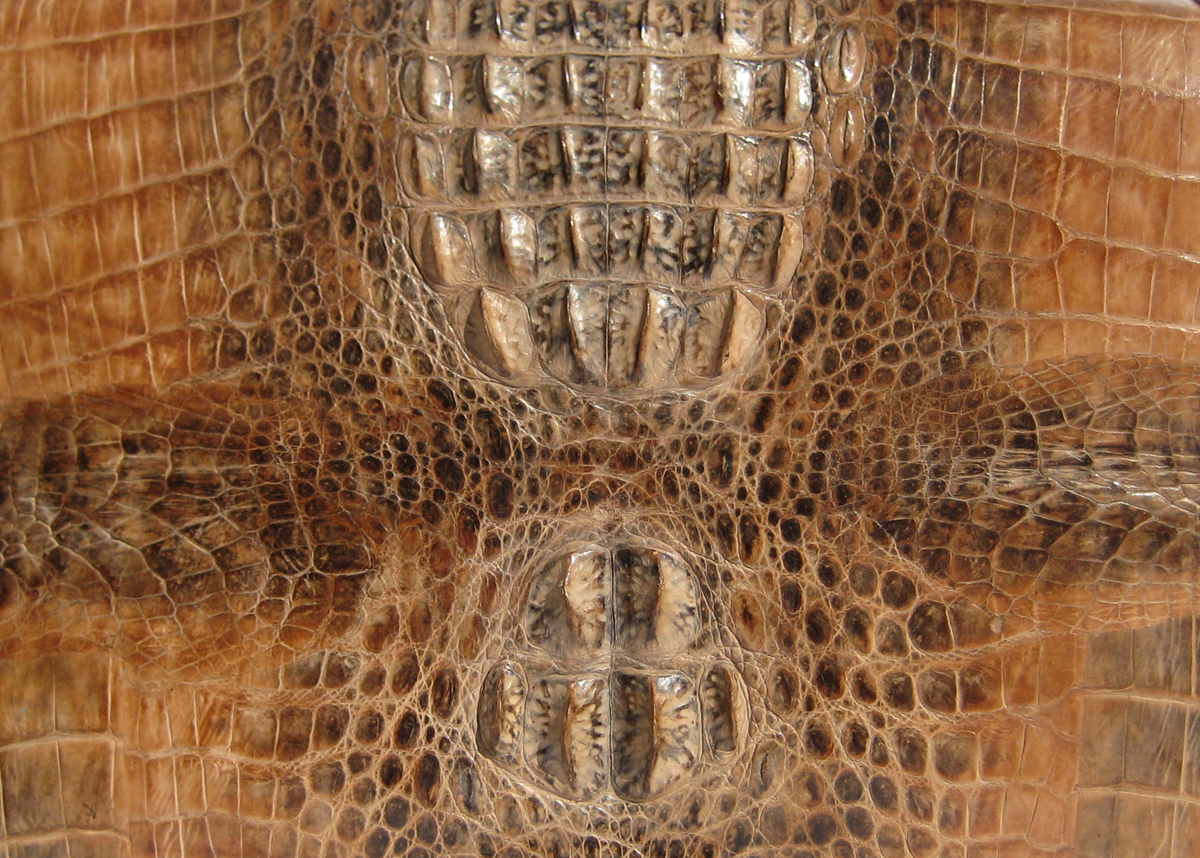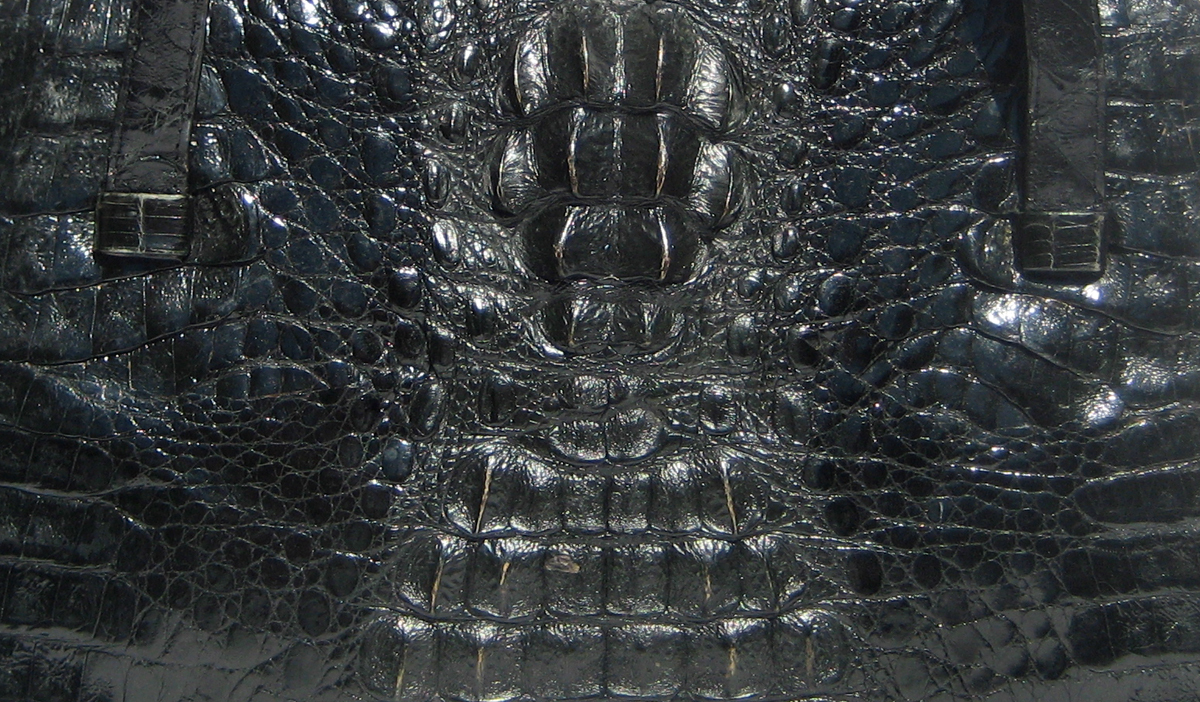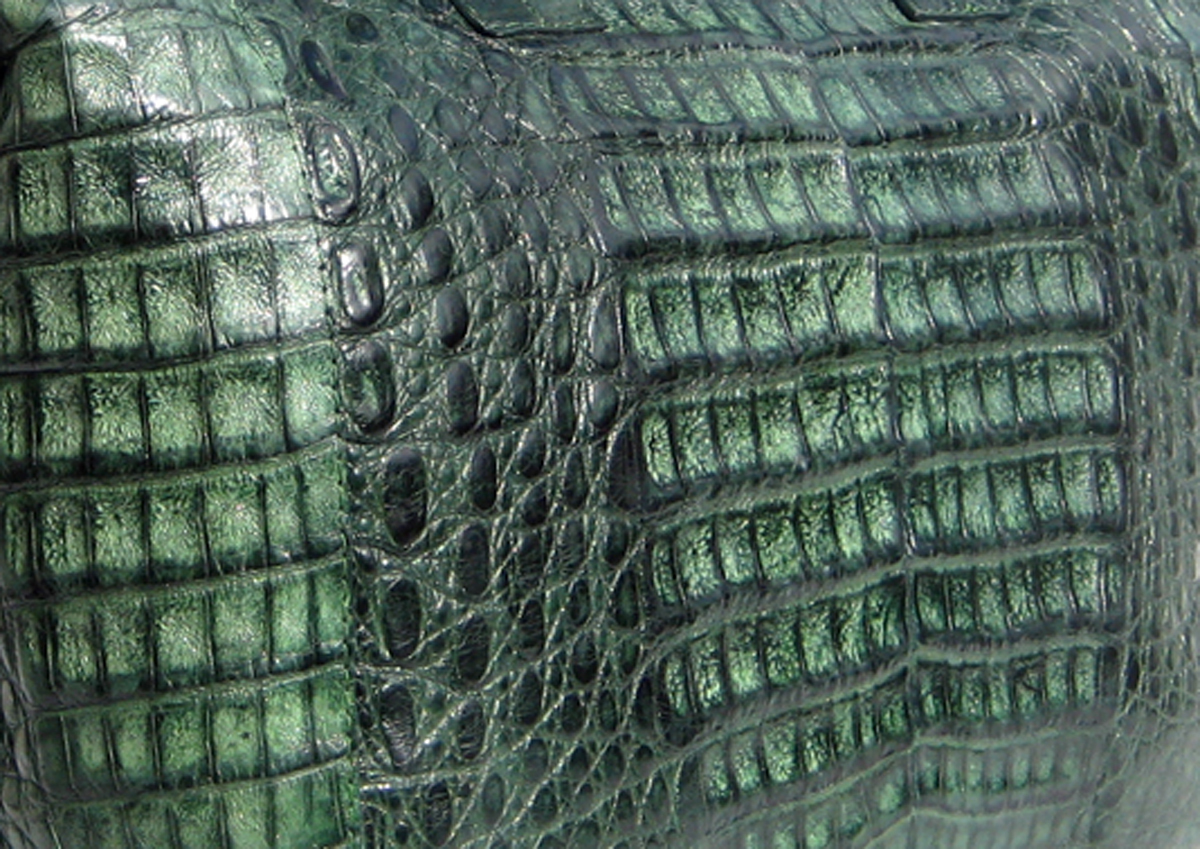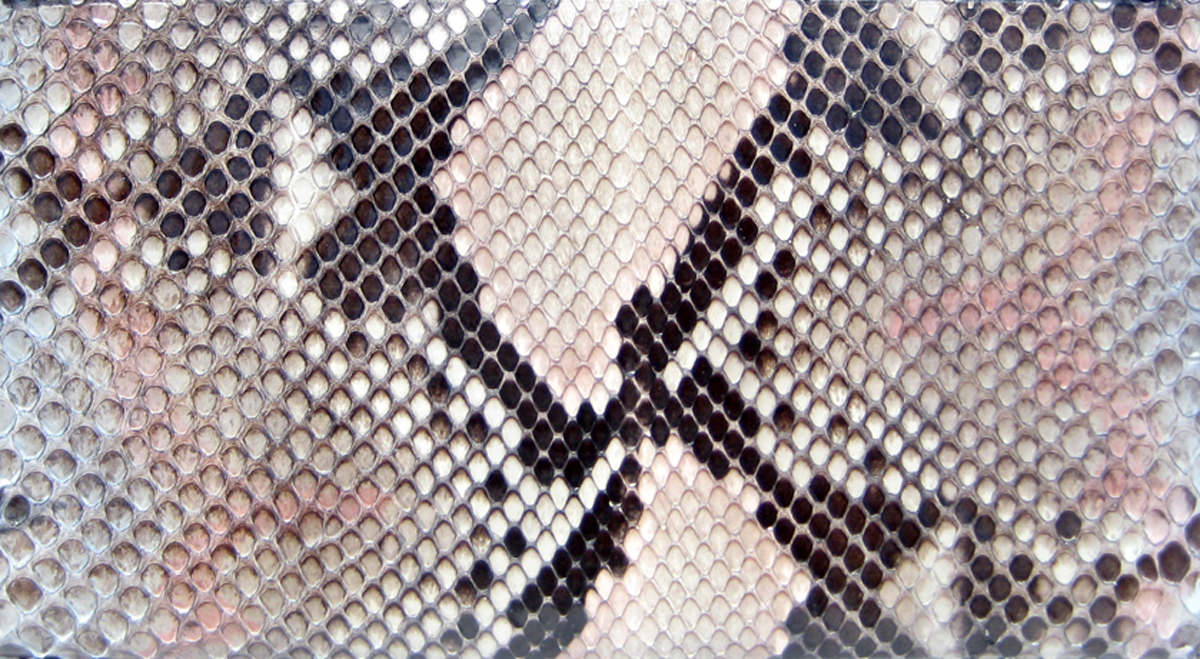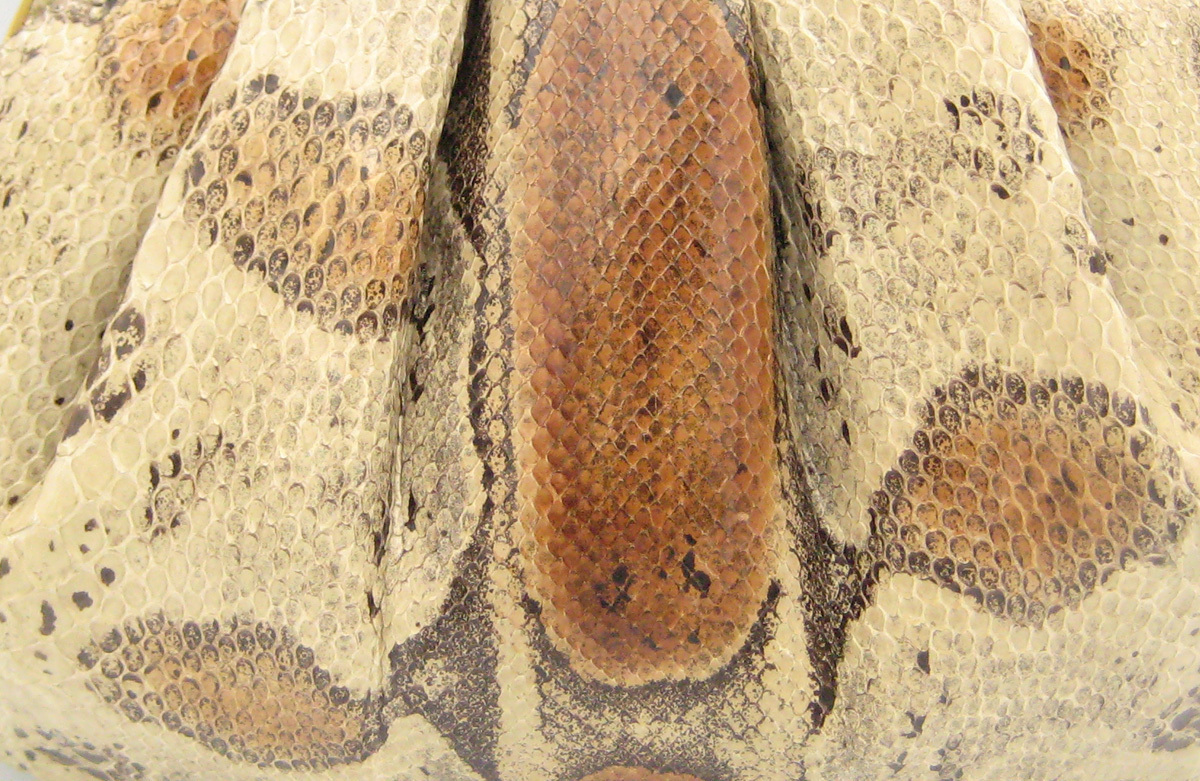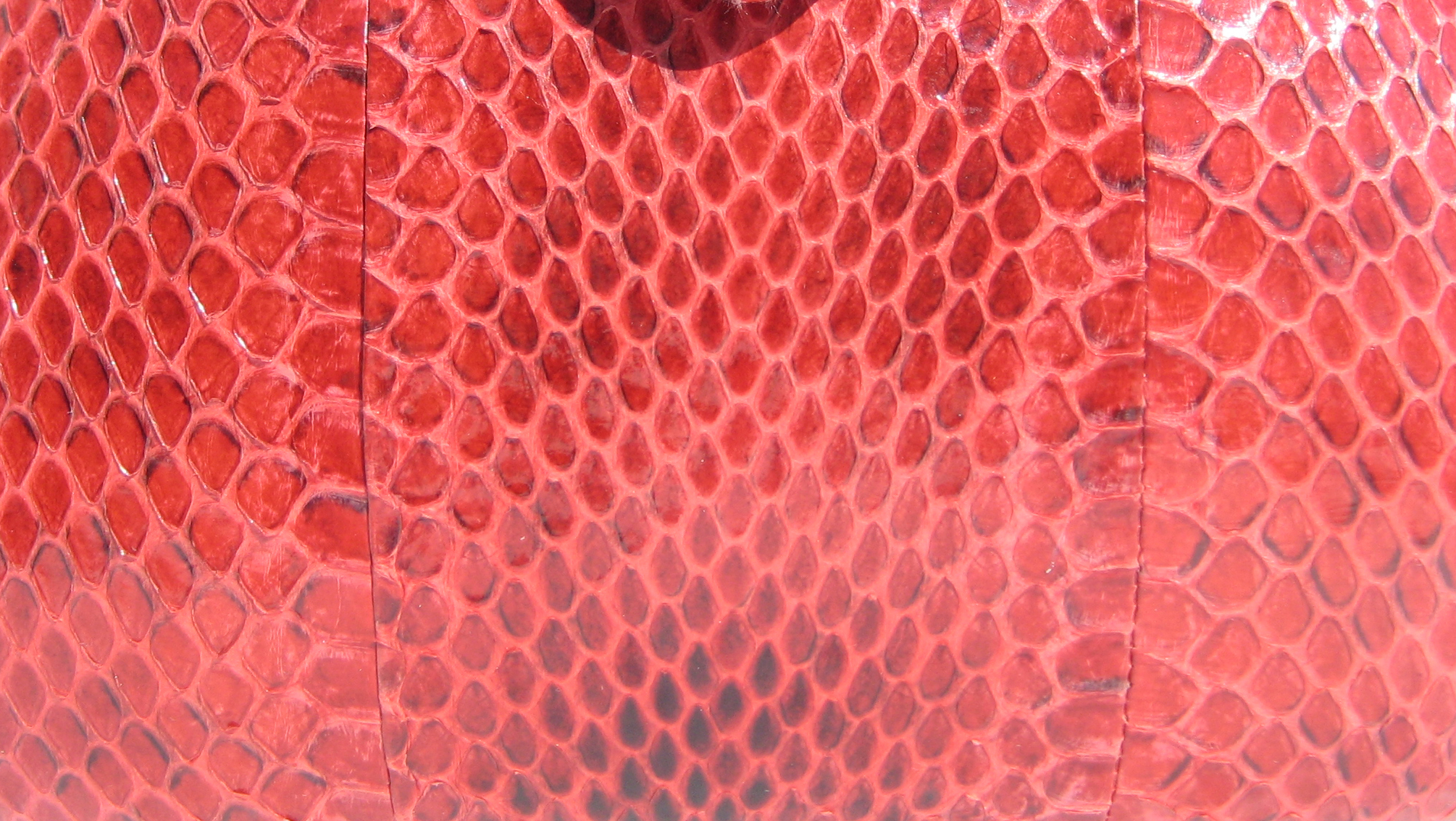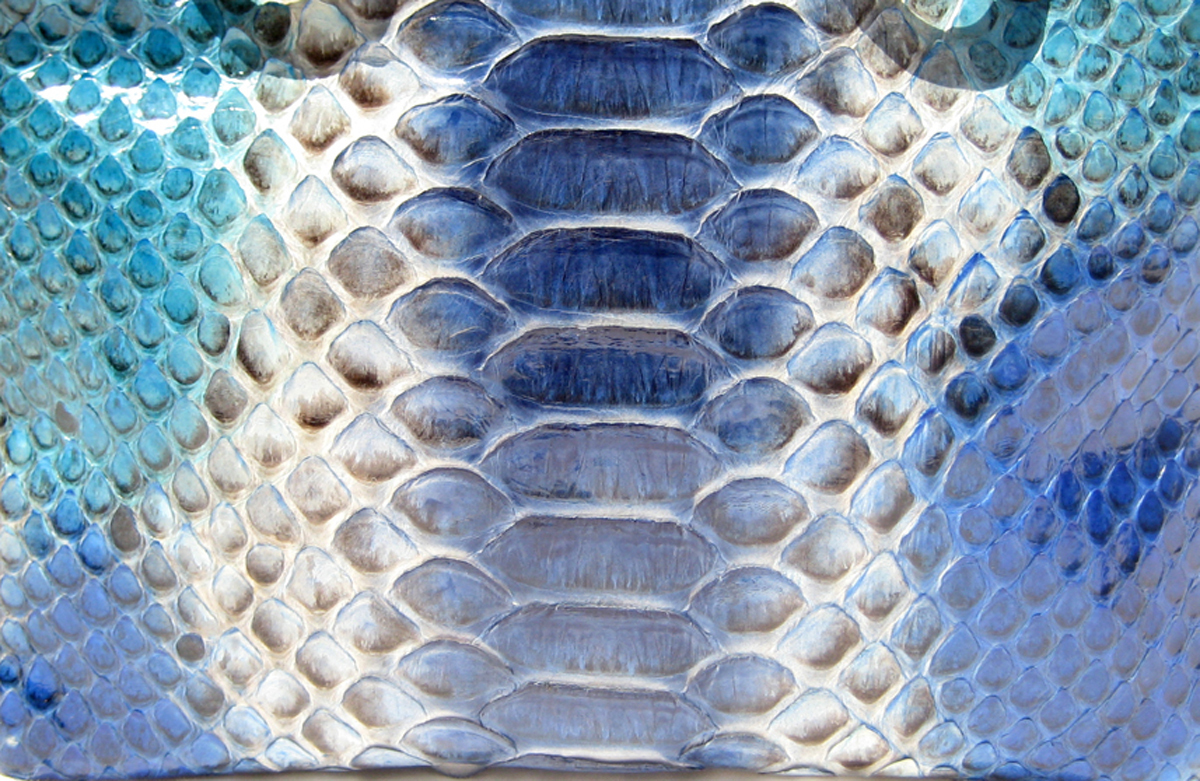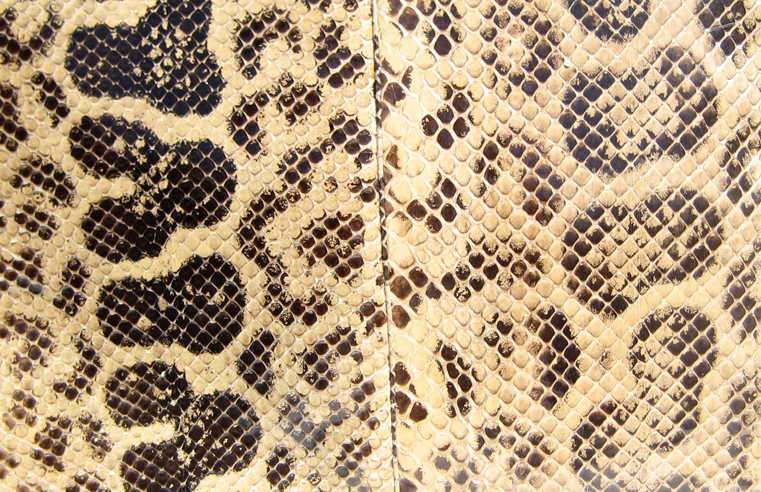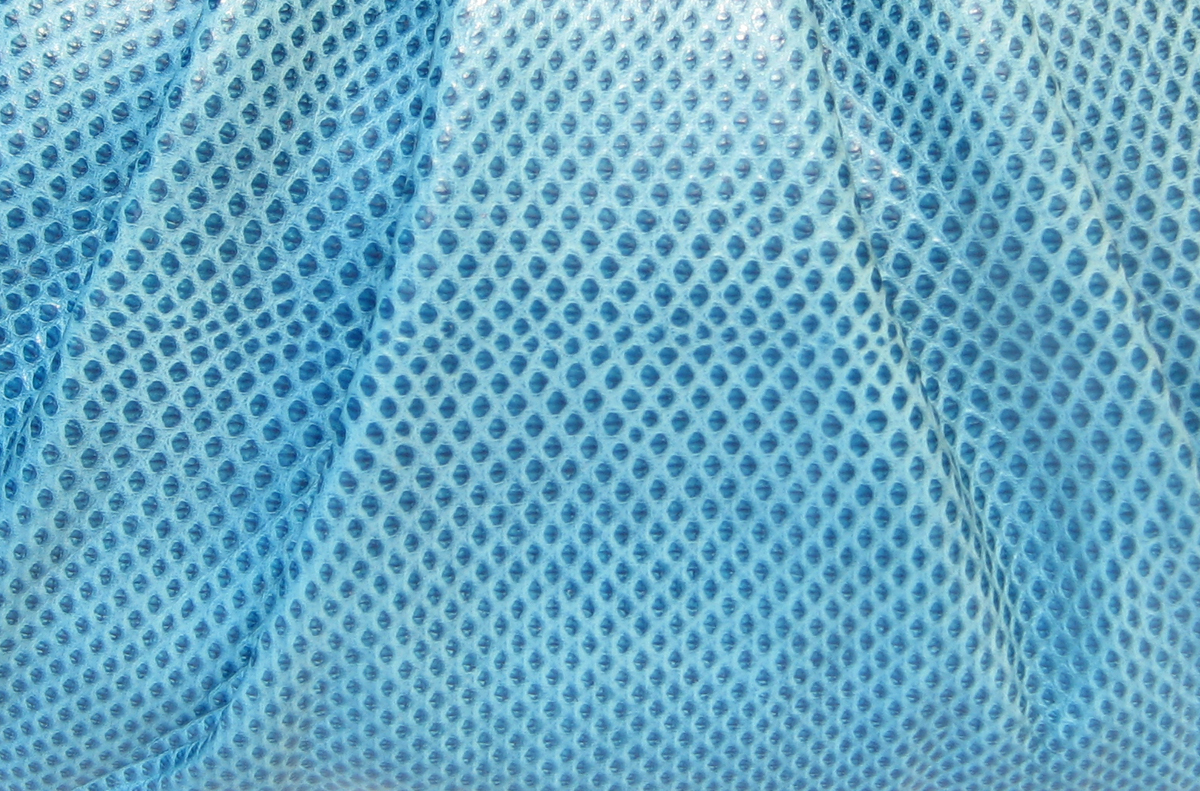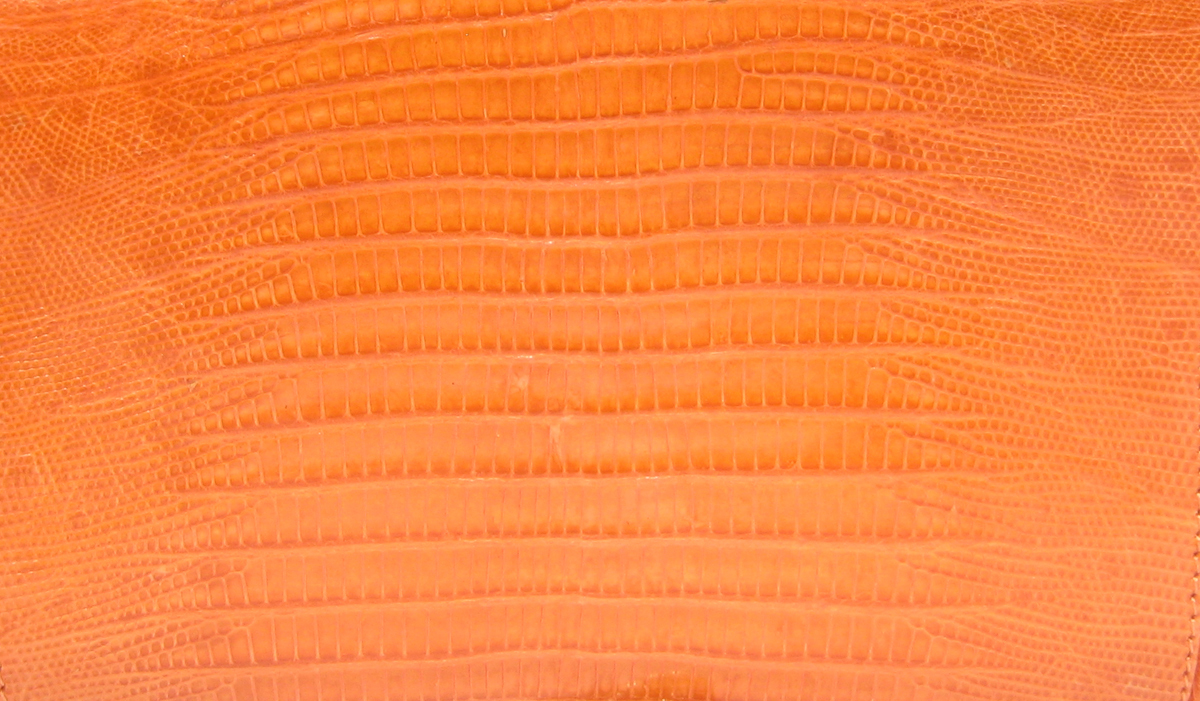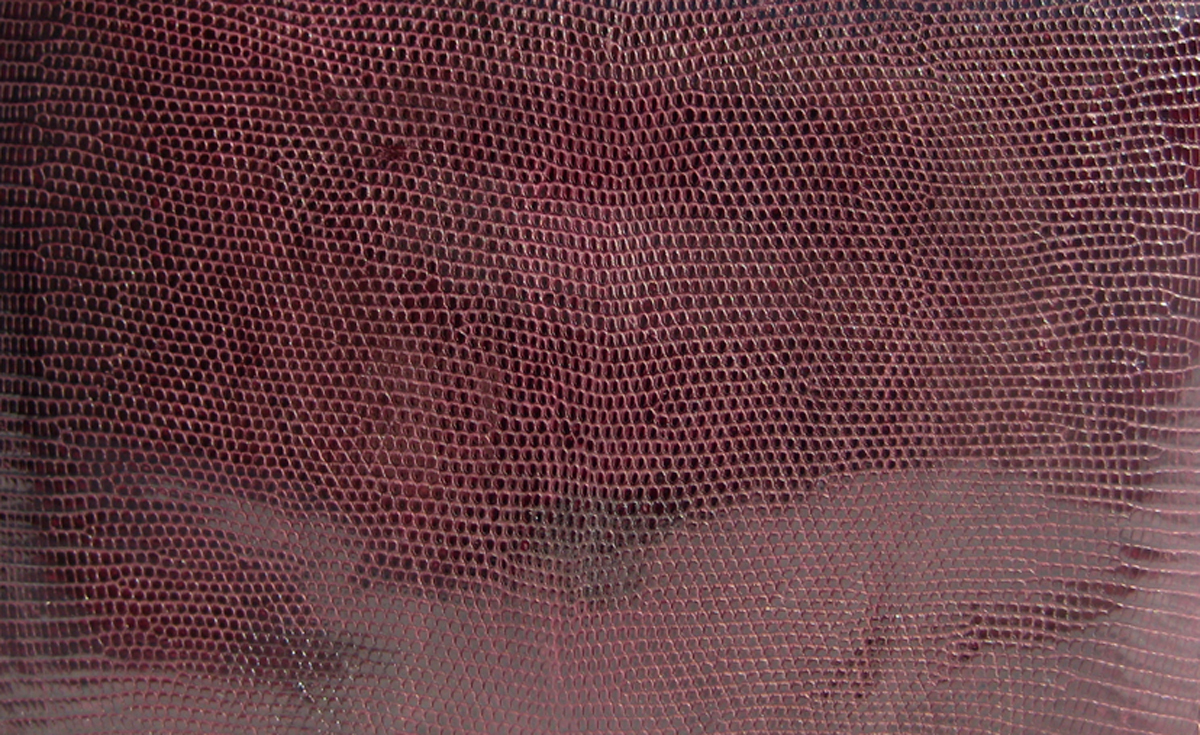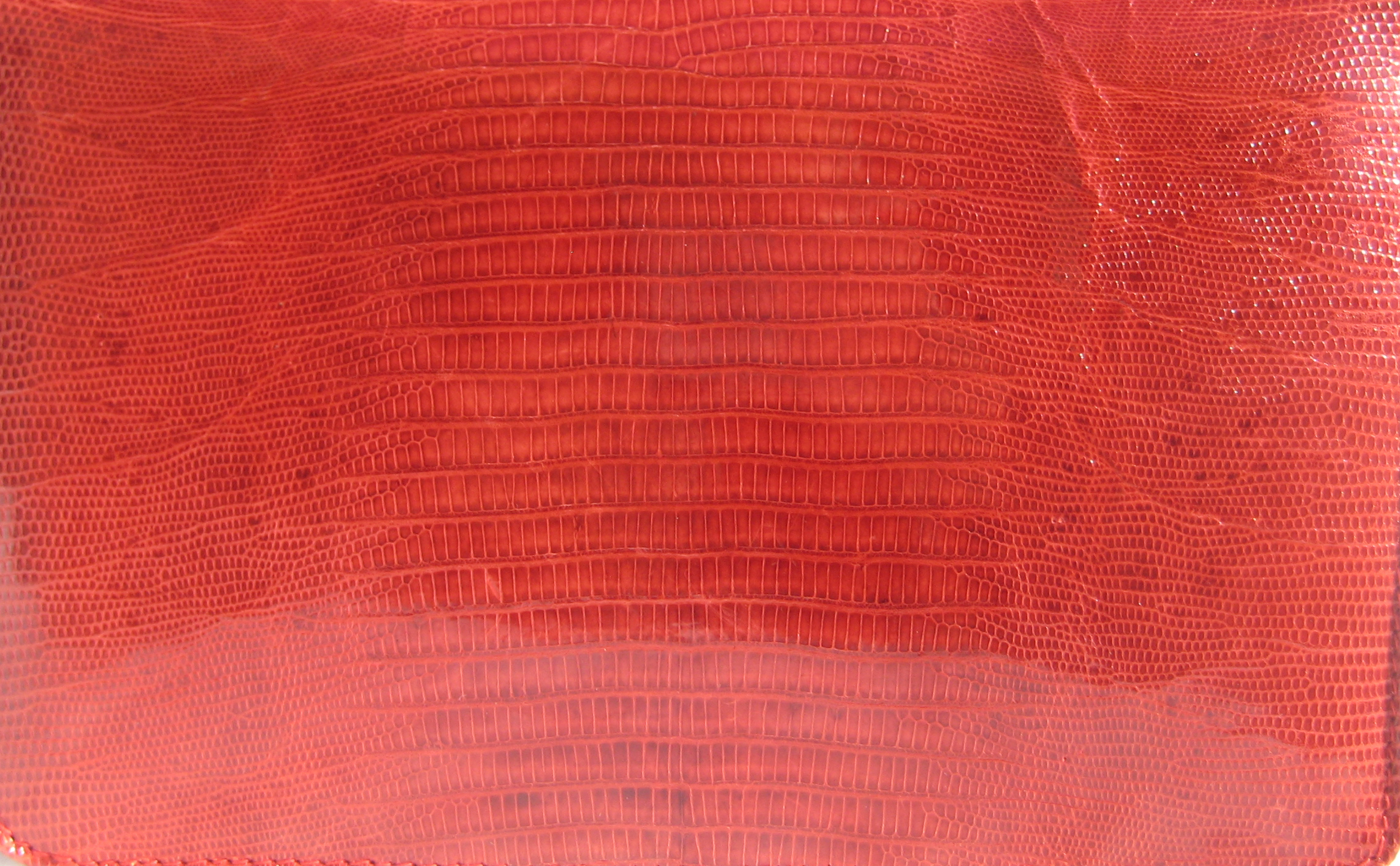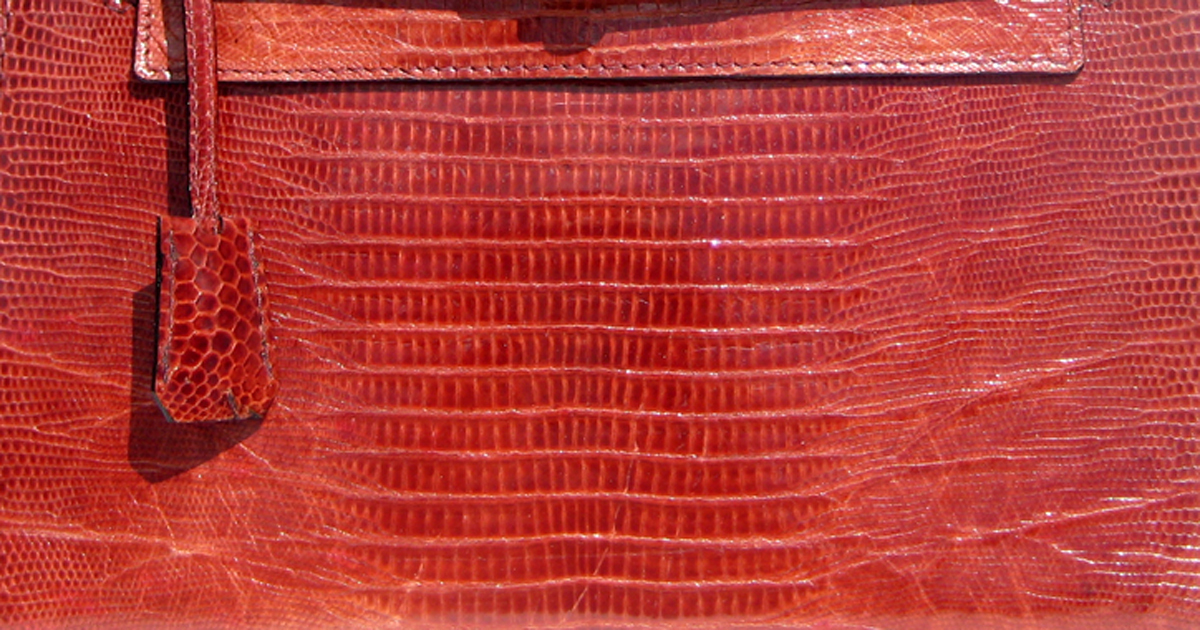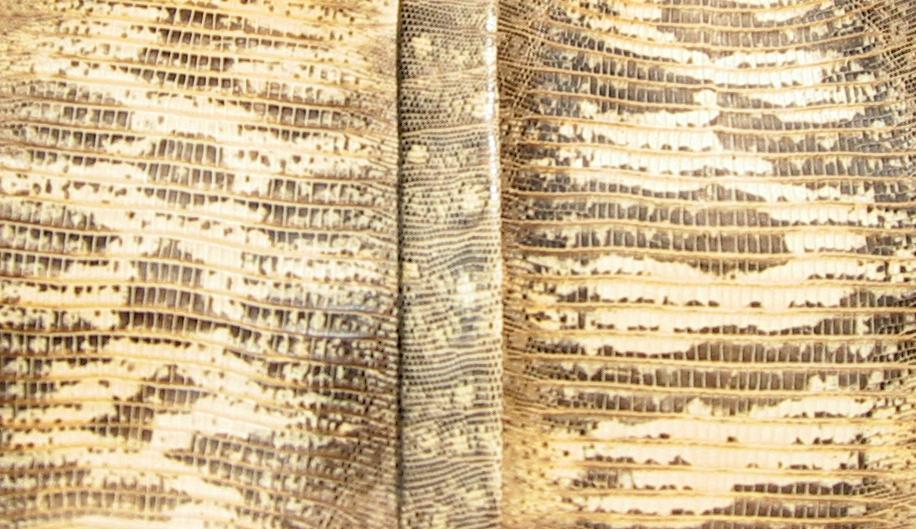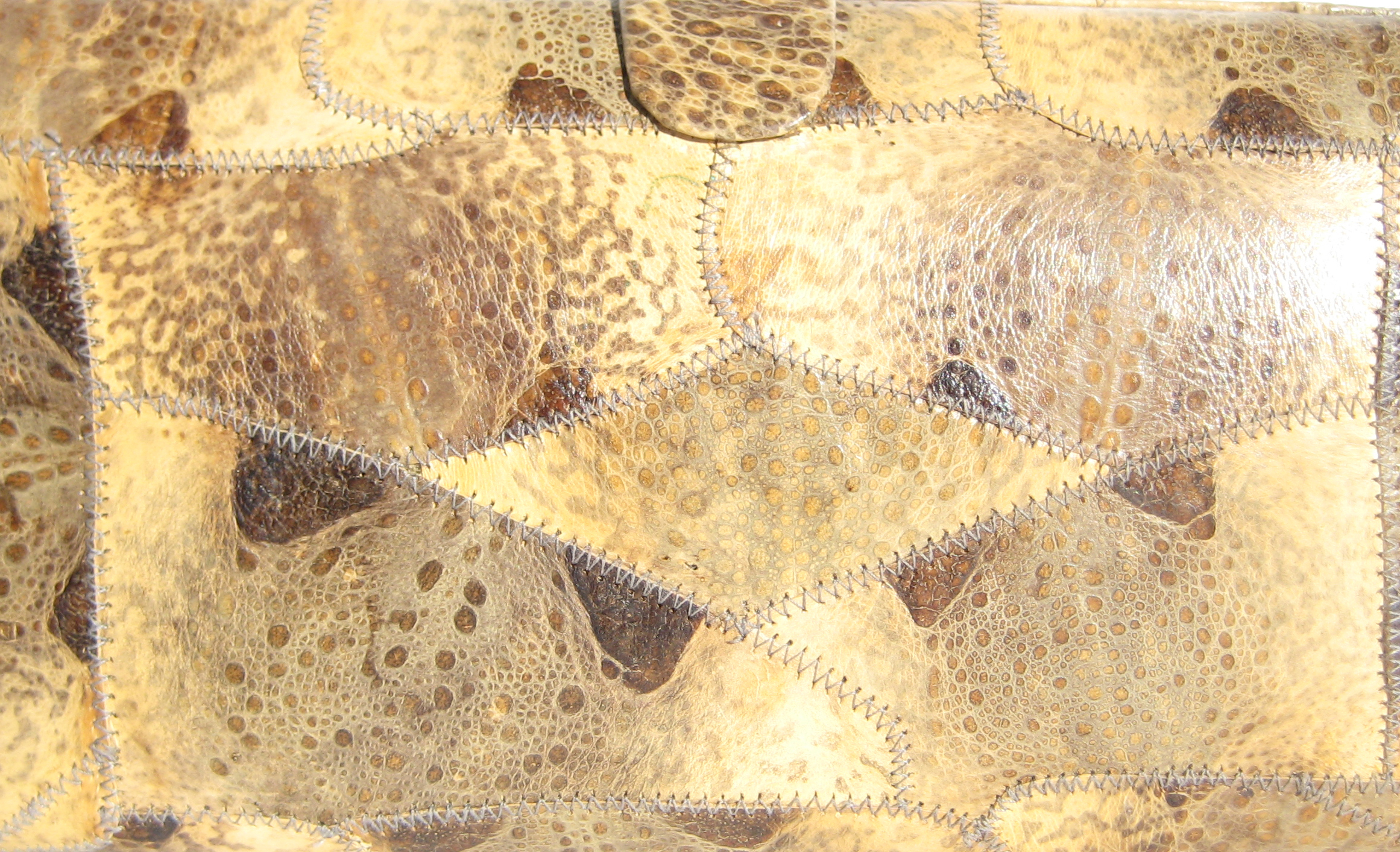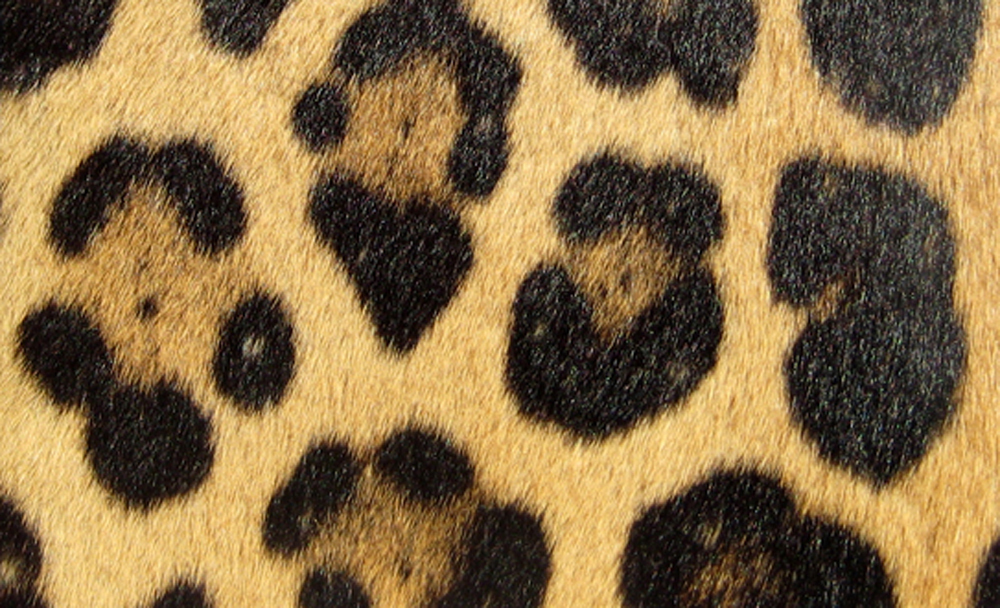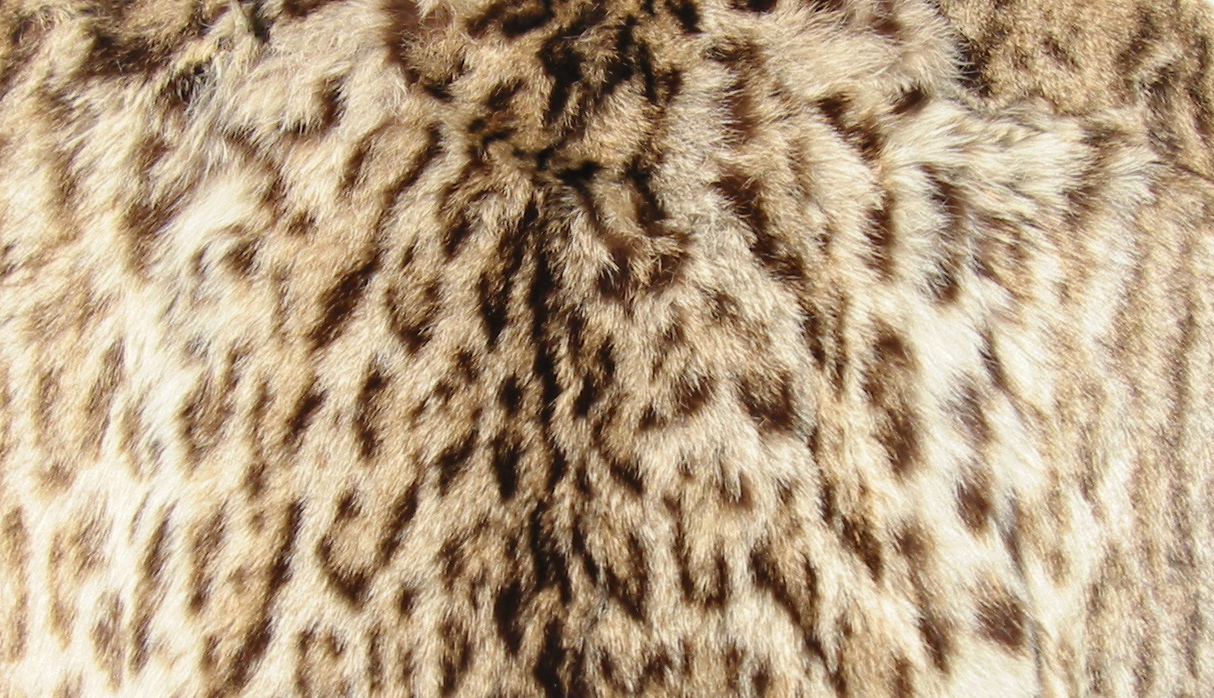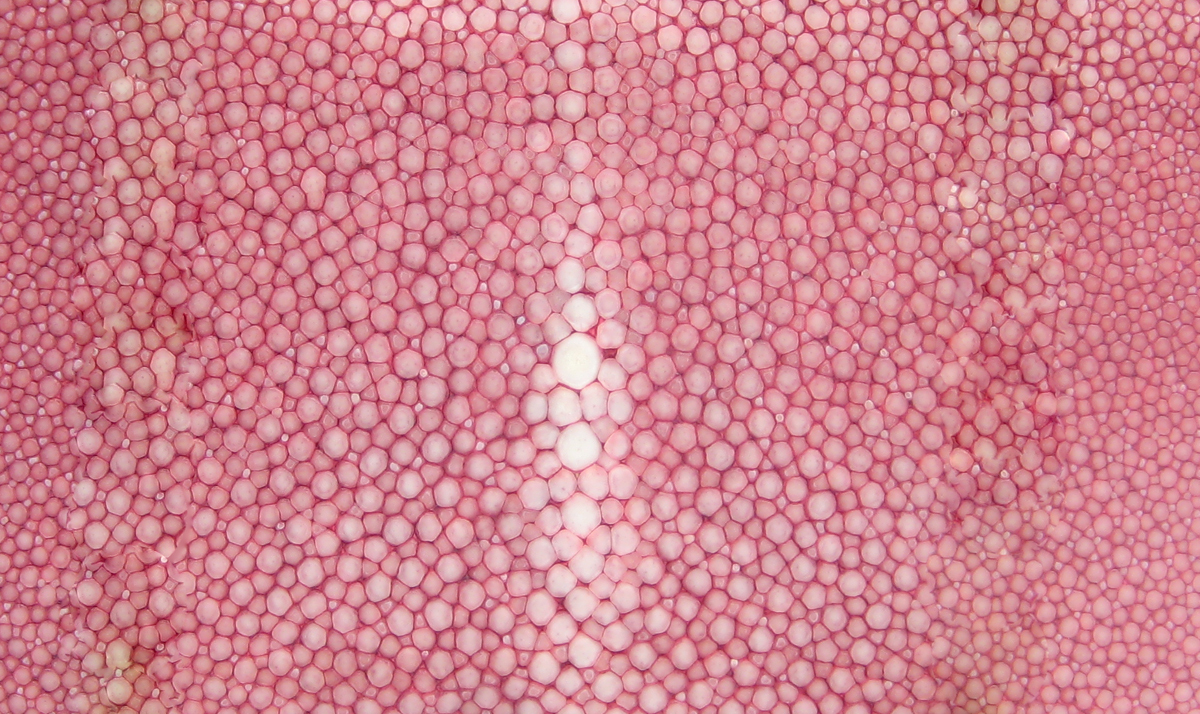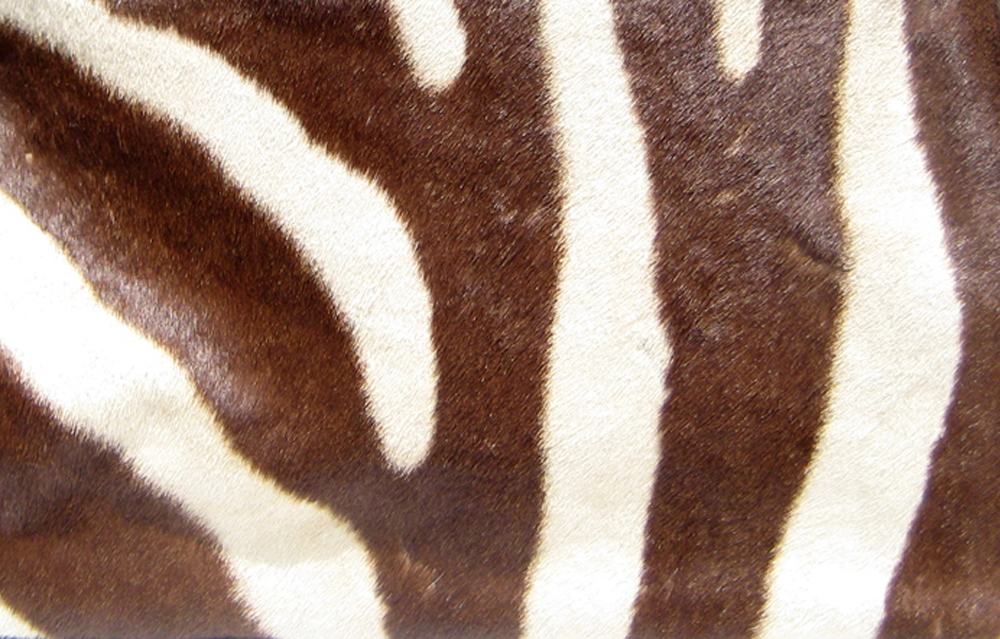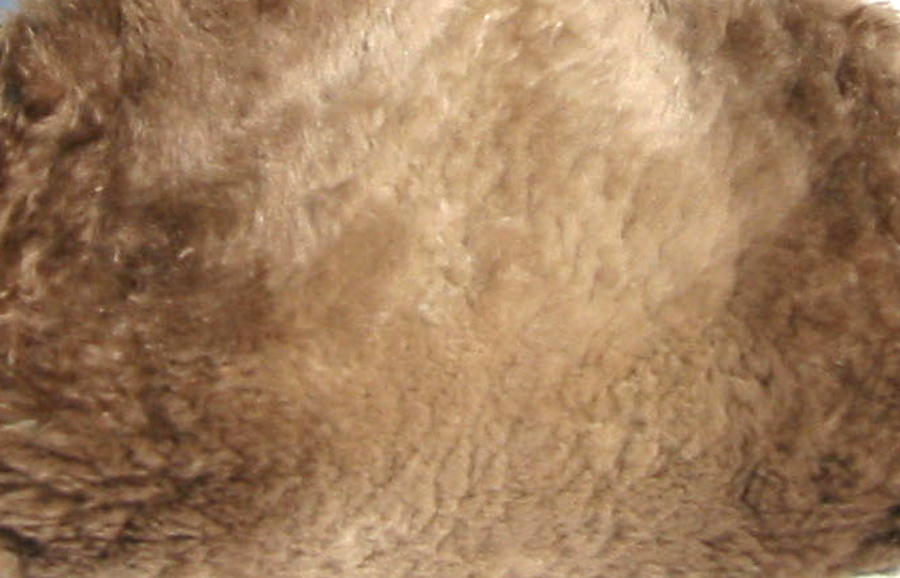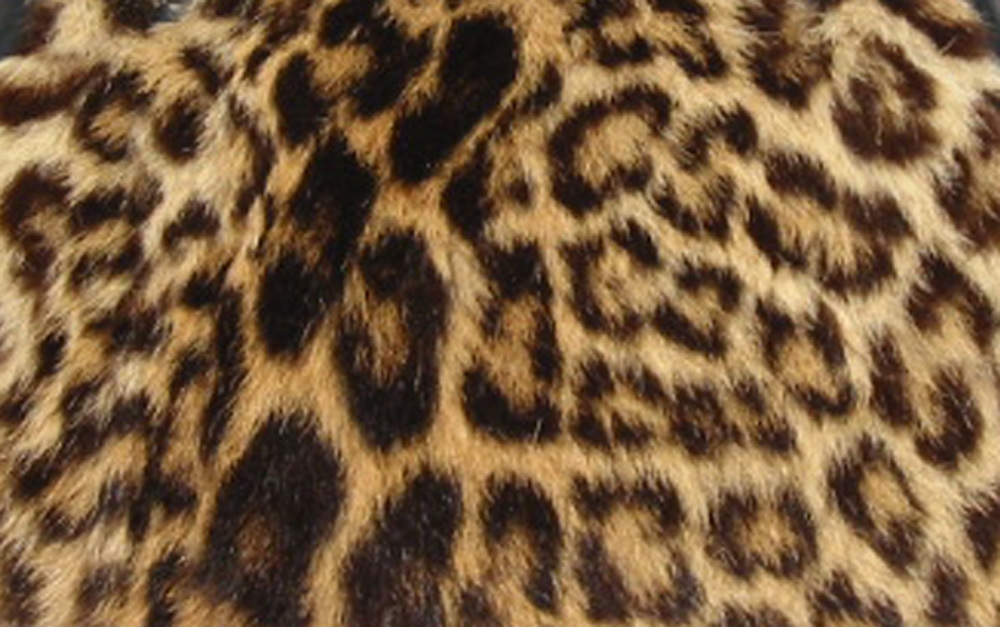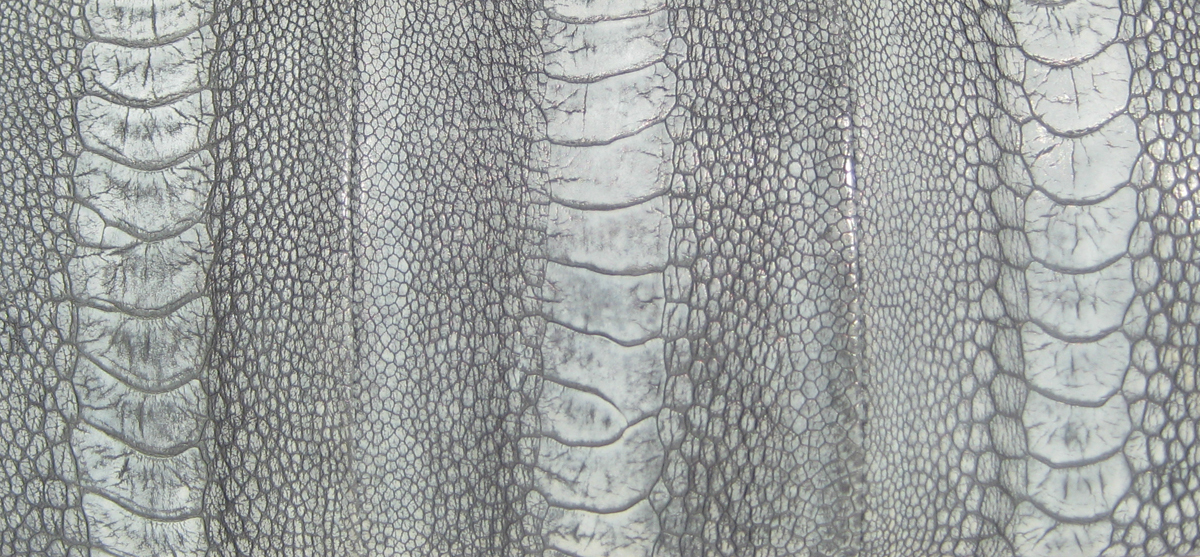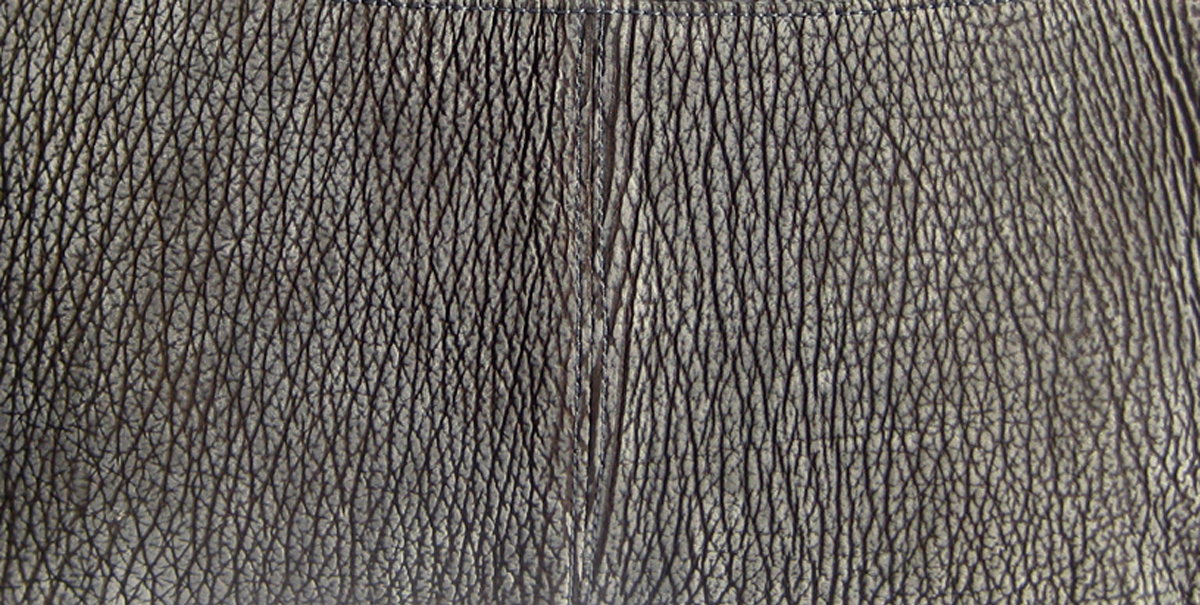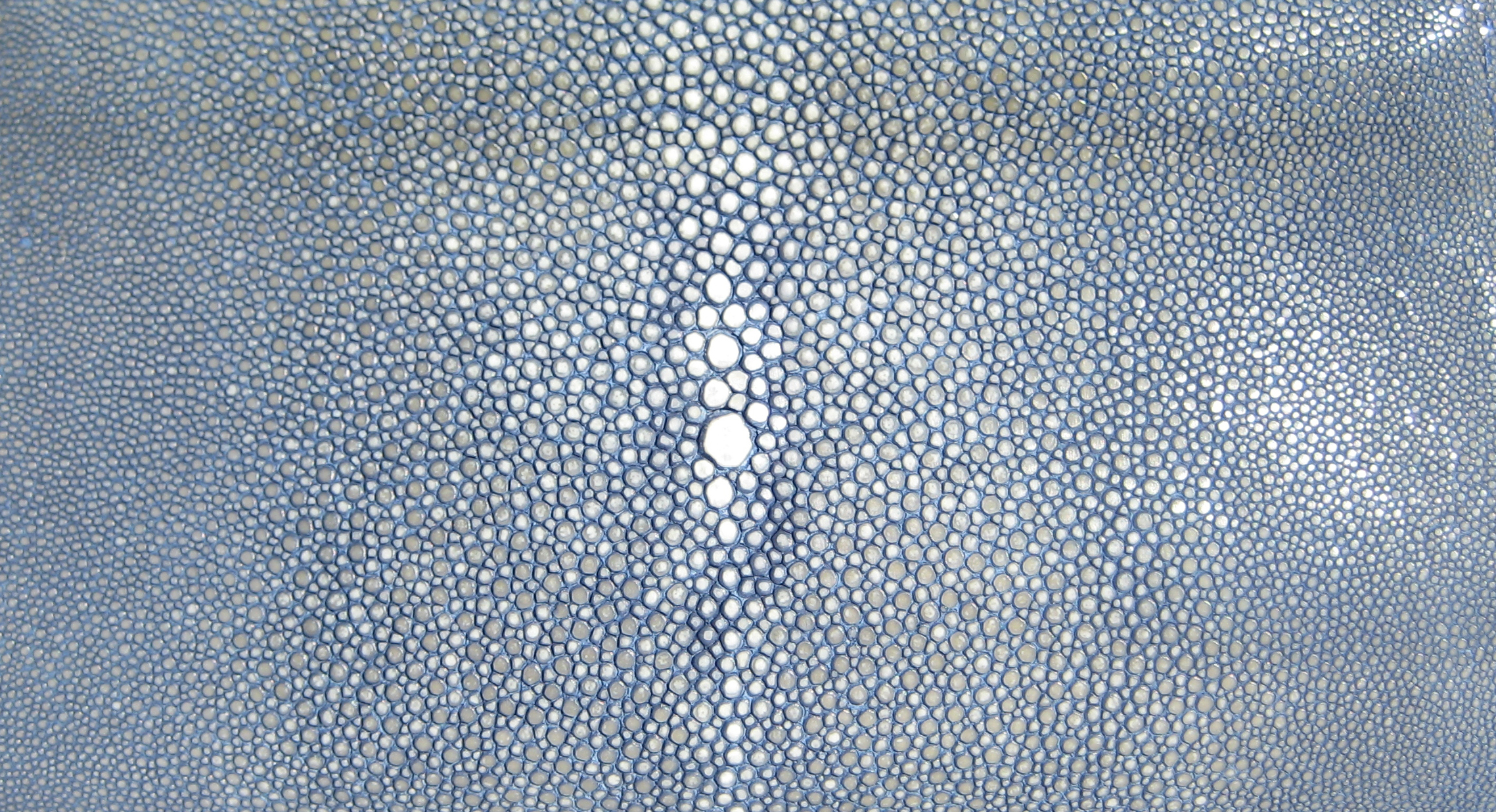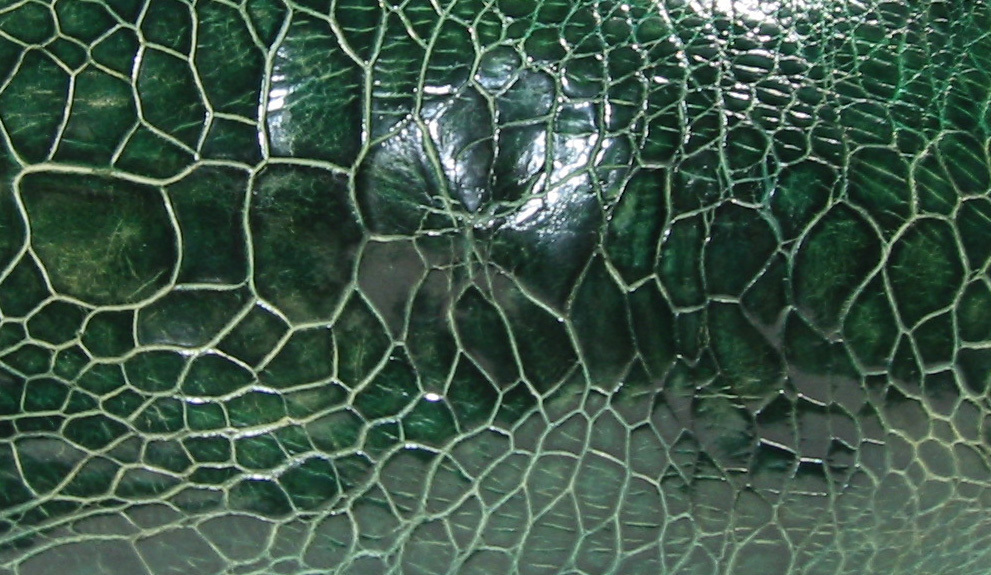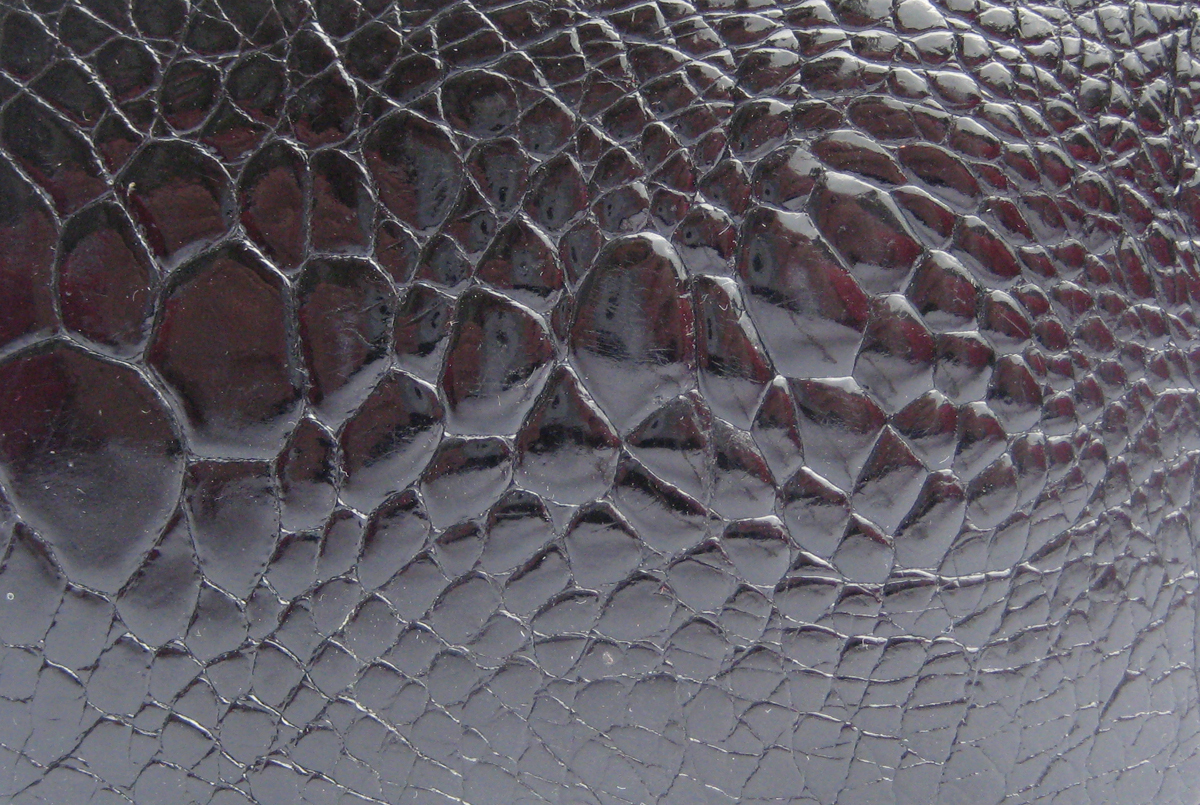Exotic Skin Type
Whether choosing a vintage or new exotic skin item, it is important to understand the different types of skins, the finishes that are available, and their characteristics in order to make educated buying decisions. Below is a visual guide which outlines the physical characteristics, and finishes when applicable, of some of the exotic skins and hides that have been available in our collection.
Overview of Crocodilian Species
The crocodilian species is one of the most ancient reptile groups, encompassing 23 species. Today, all alligator products come from the American Alligator, found only in the Southeastern U.S. and no longer endangered due to conservation efforts from 1967 to 1987. The only other alligator species, the Chinese Alligator, remains critically endangered.
Among crocodilian leathers, the Crocodile Porosus (Saltwater Crocodile) is the most sought after, prized by top brands like Hermès for its large, uniform belly scales and high commercial value. Unlike other species, its ventral osteoderms (bony deposits) are minimal, making it easier to tan. However, some dealers falsely label crocodile skins as Porosus to inflate prices. Genuine Porosus crocodile has rectangular belly scales and oval flank scales, easily identified in Hermès Crocodile Birkin bags.
Alligator and crocodile leathers come in various finishes and textures, influencing their final look and feel. Despite the common misconception that crocodilian leather is delicate, it is actually one of the most durable exotic leathers available. The visual guide below showcases different species, textures, and finishes to help buyers make informed decisions.
Crocodilian Species (Alligator & Crocodile)
Overview of Snake
For centuries, snakes have been revered across cultures, symbolizing transformation, elegance, and mystique in religion, folklore, and tradition. Their distinctive patterns and textures have long been admired. Among the most refined and distinguished snake skins used in handbags and accessories are cobra, karung, and python—each with its own unique character and allure. Below, we showcase a selection of exceptional skins from our collection, offering a closer look at their artistry and enduring appeal.
Snake Skin Category
Overview of Lizard
Among the most recognized lizard skins used in handbags and accessories are tegu, crocodile skink, and monitor lizard, each possessing its own distinctive texture and character. Below, we highlight a selection of exceptional lizard skins from our collection, showcasing their beauty and timeless sophistication.
Lizard Skin Category
Other Exotic Skins & Hides
Throughout history, rare and distinctive skins have been admired for their natural beauty and individuality, each carrying a unique story shaped by time and environment. From the rich textures of ostrich and the intricate patterns of ocelot, to the rugged refinement of elephant and the unmistakable markings of zebra, these skins have long been appreciated for their depth, character, and artistry. Below, we present a selection of exceptional exotic skins, each chosen for its one-of-a-kind appeal and enduring elegance.
Other Exotic Skins & Hides Category
The Vintage Skins Experience
Our collection is thoughtfully chosen for its quality and character, providing a conscious way to own a piece of fashion history, all while reducing demand for newly produced exotic skins.
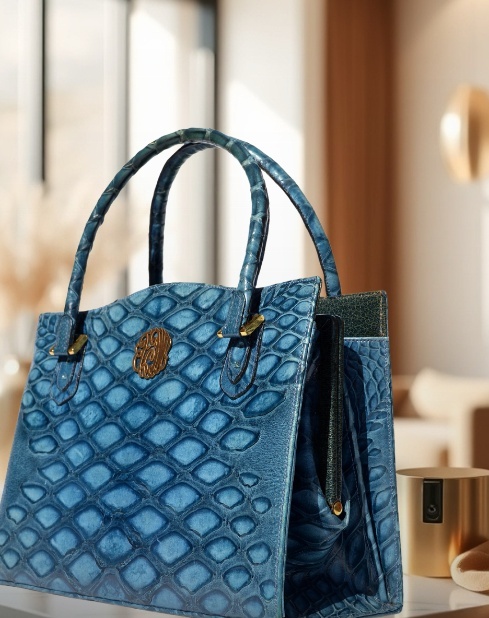
The Art of Exotic Skins
From supple alligator to the refined textures of ostrich and python, each skin type in our collection has been thoughtfully selected for its rarity, beauty, and lasting quality.
Skin Types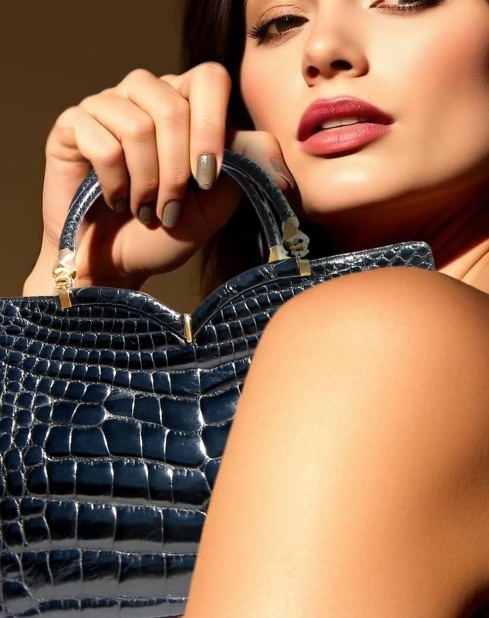
Exotic Skin Care
To ensure the longevity and beauty of your exotic skins, regular nourishment is essential. Take care of your skins and keep them looking their best for years to come.
SKIN CARE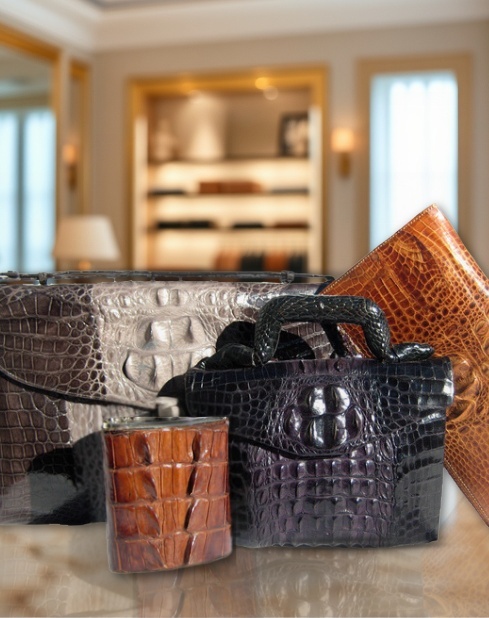
Exotic Skin Accessories
Discover our curated collection of vintage and antique exotic skin accessories, including doctor bags, portfolios, briefcases, change purses, wallets, key cases, and bracelets.
ACCESSORIES
